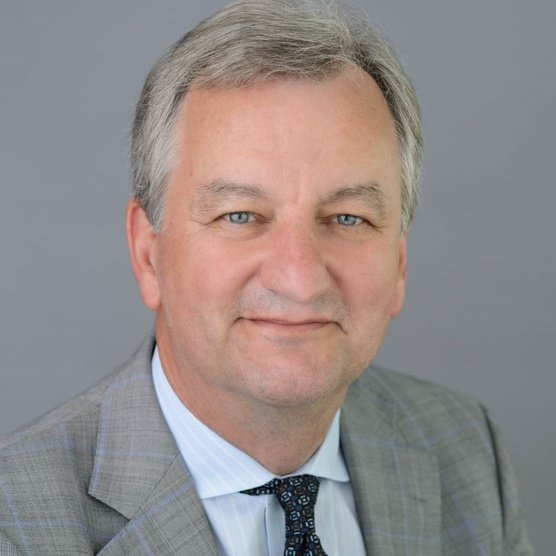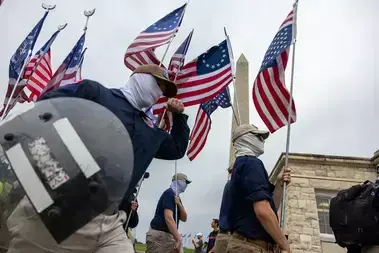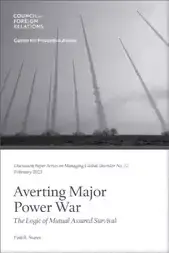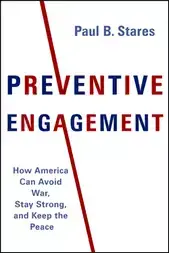Expert Bio
Paul B. Stares is the General John W. Vessey senior fellow for conflict prevention and director of the Center for Preventive Action at the Council on Foreign Relations (CFR). An expert on conflict prevention and a regular commentator on current affairs, he is the author or editor of nine books on U.S. security policy and international relations. His latest book, Preventive Engagement: How America Can Avoid War, Stay Strong, and Keep the Peace (Columbia University Press, 2017), provides a comprehensive blueprint for how the United States can manage a more turbulent and dangerous world.
Prior to joining CFR, Stares was vice president and director of the Center for Conflict Analysis and Prevention at the United States Institute of Peace. He worked as associate director and senior research scholar at Stanford University's Center for International Security and Cooperation from 2000 to 2002 and was senior research fellow at the Japan Institute of International Affairs and then director of studies at the Japan Center for International Exchange from 1996 to 2000. From 1984 to 1996, he was a research associate and later senior fellow in the foreign policy studies program at the Brookings Institution. He has also been a NATO fellow and a scholar in residence at the MacArthur Foundation's Moscow office.
Stares has participated in various high-level studies, including the Genocide Prevention Task Force co-chaired by Madeleine Albright and William Cohen, the expert working group on the strategic environment for the Iraq Study Group co-chaired by James Baker and Lee Hamilton, and the Task Force on Extremism in Fragile States co-chaired by Thomas Kean and Lee Hamilton. In addition to his most recent book, Preventive Engagement, he has authored or edited numerous books as well as several CFR publications, notably Partners in Preventive Action (Council Special Report No. 62), Managing Instability on China's Periphery (Asia Security Memorandum), "Enhancing U.S. Crisis Preparedness" (Policy Innovation Memorandum No. 4), "Military Escalation in Korea" (Contingency Planning Memorandum No. 10), Enhancing U.S. Preventive Action (Council Special Report No. 48), and Preparing for Sudden Change in North Korea (Council Special Report No. 42).
Stares has a BA from North Staffordshire Polytechnic and received both his MA and PhD from Lancaster University.
Media Inquiries
-
India believes it is well-positioned to navigate a second Trump administration and that U.S.-India relations will continue to deepen.
-
-
Given recent developments in the Trump administration's approach to Russia and Ukraine, members are invited to join this virtual media briefing with CFR fellows. As the third anniversary of the Russian invasion of Ukraine approaches, CFR experts provide insights on the talks between the United States and Russia, the reactions from Europe, and the path forward for Ukraine. To register for this virtual meeting, please click the Register or Decline button or reply to this email. Please join the Zoom event at least five minutes before the start of the presentation by using the below details: Trump, Russia, and the Future of Ukraine Zoom Webinar ID: 848 1398 4959 Zoom Password: 862896 For additional analysis by CFR experts, please visit CFR’s Special Initiative on Securing Ukraine’s Future.
-
The Trump administration is signaling that European allies need to take the lead in securing Ukraine. How they respond has a crucial bearing on Ukraine’s fate and the future of the transatlantic partnership.
-
The Religion and Foreign Policy Workshop convenes clergy, seminary heads, scholars of religion, and representatives of faith-based organizations from around the country for discussions with policymakers, CFR fellows, and other experts. The event is a valuable opportunity to engage with colleagues and participate in substantive conversations on international issues of interest to religious communities. The workshop will include an opening night dinner conversation, plenary sessions, and breakout discussions with choices among a variety of thematic and regional topics. Access the complete agenda here
-
President Donald Trump has indicated his desire to bring a speedy end to the war in Ukraine. How this goal will be accomplished, given the numerous obstacles, remains to be seen. In a series of publications, CFR experts on Ukraine and Russia provide a complementary set of policy recommendations aimed at ensuring Ukraine’s survival and success as an independent state. This meeting is part of the Council Special Initiative on Securing Ukraine’s Future and Wachenheim Program on Peace and Security.
-
A cease-fire deal with Russia will not ensure Ukraine’s long-term security. CFR’s Paul Stares and the Brookings Institution’s Michael O’Hanlon argue for a multilayered defense system that could prevent another invasion while being financially sustainable for Ukraine’s allies.
-
As the third anniversary of Russia’s invasion of Ukraine looms, President Donald Trump and his administration are working toward bringing the war to a swift end. Five experts lay out recommendations for the Trump administration to ensure Ukraine’s survival and independence in alignment with core U.S. interests.
-
This event will explore the results of the 2025 Preventive Priorities Survey which polls hundreds of foreign policy experts every year to assess thirty ongoing or potential violent conflicts and their likely impact on U.S. interests. The results are available here. Panelists will delve into the global political implications of the conflicts that top the list, as well as ways the Trump administration should handle them. If you wish to attend virtually, log-in information and instructions on how to participate during the question and answer portion will be provided the evening before the event to those who register. Please note the audio, video, and transcript of this hybrid meeting will be posted on the CFR website.
-
U.S. foreign policy experts rank the thirty global conflicts that could most significantly affect the United States in 2025.
-
Vice President Kamala Harris and former President Donald Trump offer sharply different approaches on U.S. policy toward Ukraine’s war with Russia, reflecting broader disagreement toward NATO and U.S. alliances.
-
 Online Store
Online Store








